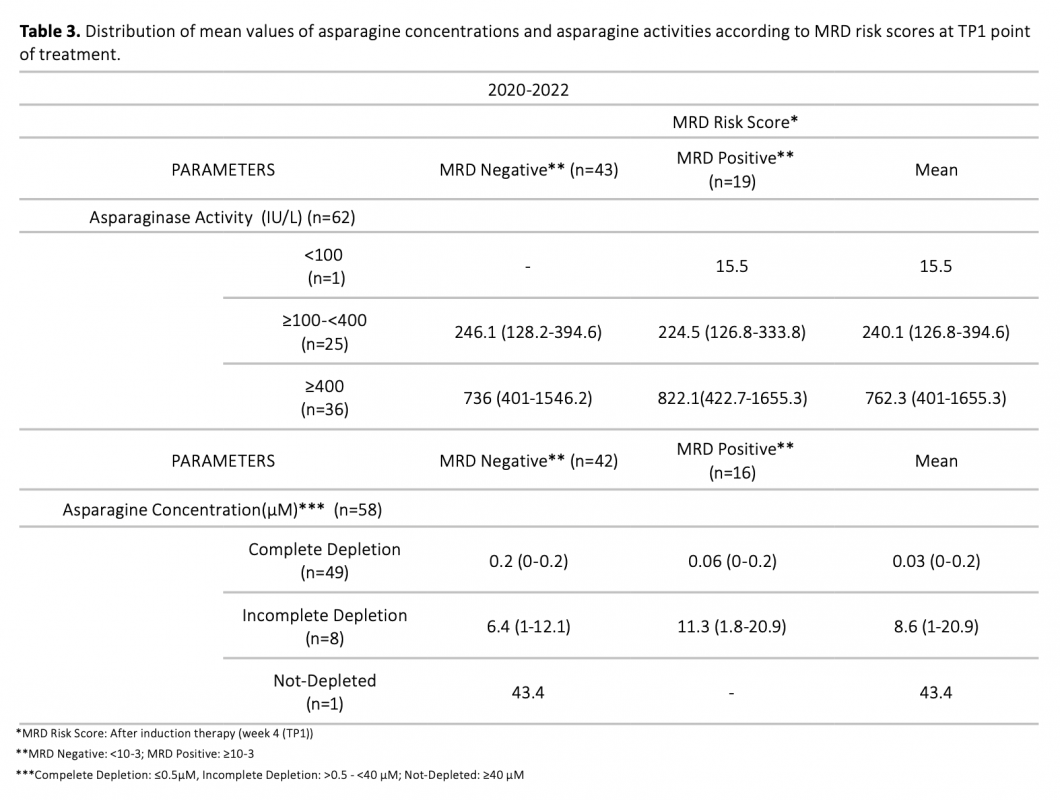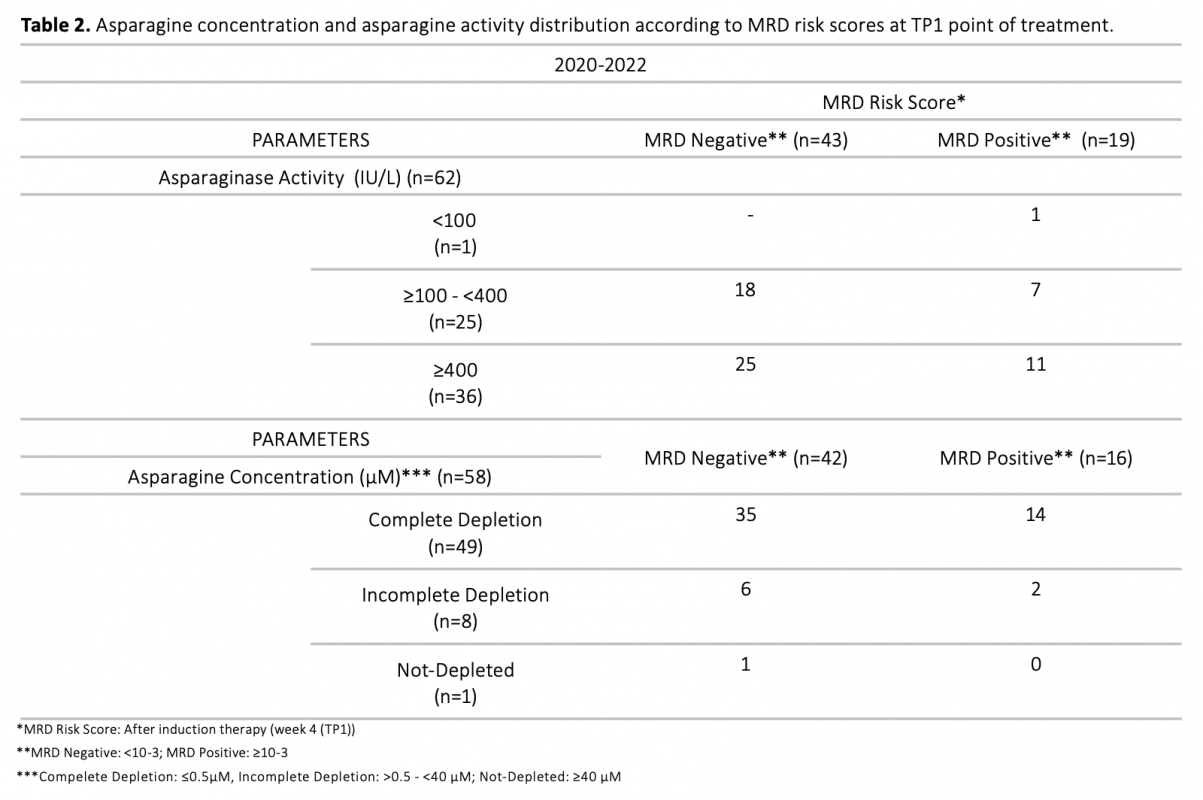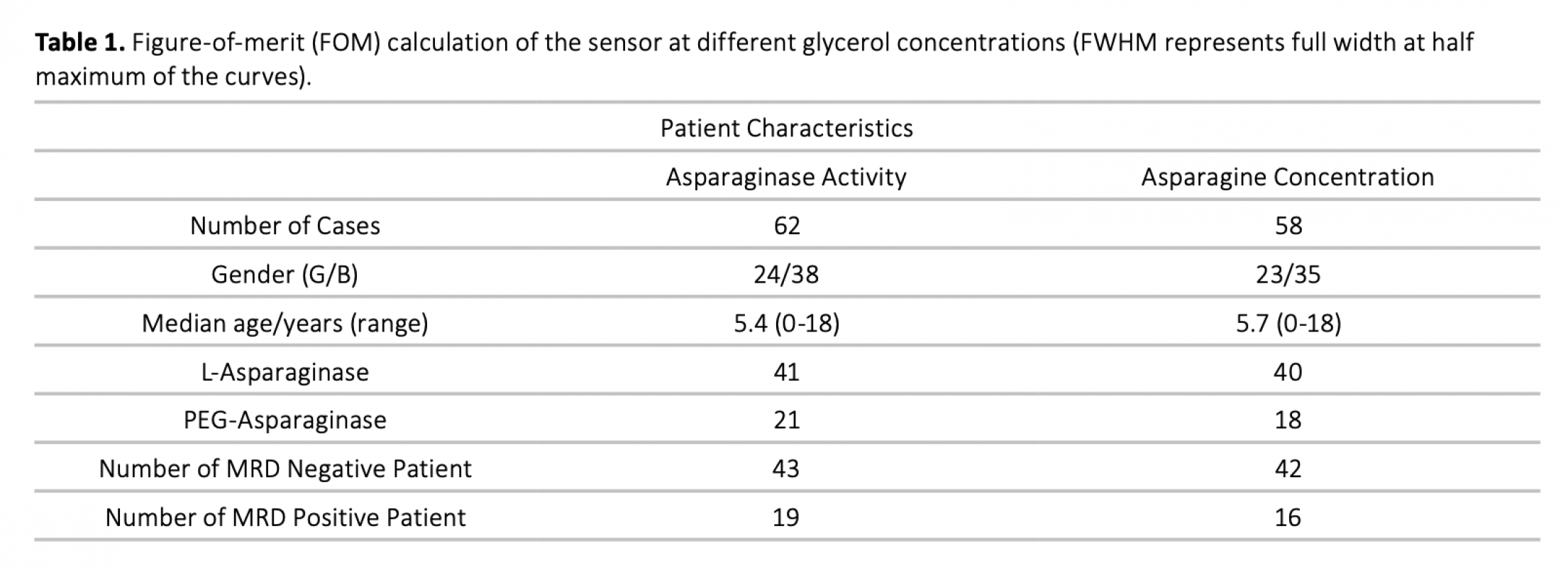B-ALL is the most common subtype of childhood Acute Lymphoblastic Leukemia (ALL), affecting approximately 85% of children with ALL presents worldwide. Minimal Residual Disease (MRD) monitoring during treatment of ALL is important for the prognosis of the disease. MRD monitoring, which enables early detection of relapse, determination of risk percentage and understanding the effectiveness of treatment, can be performed with multiple methods such as flow cytometry, qRT-PCR and NGS. Asparaginase is an enzyme that has been used in the treatment of ALL since the 1960s, converting asparagine to ammonia and aspartic acid, lowering serum asparagine levels and causing the death of malignant cells. In this study, we investigated the effect of asparaginase added to the ALL IC BFM 2009 treatment protocol in 62 B-ALL patients aged 0-18 years with MRD monitoring by flow cytometry. In our study, Escherichia coli (E.coli.) asparaginase was used primarily and PEG-asparaginase was used after allergy development. The effect of asparaginase on treatment was evaluated by evaluating asparagine concentration and asparaginase activity measured at TP1 (4th week after induction treatment) together with MRD levels. As a result of the study, it was observed that the added asparaginase positively affected the treatment and increased the negativity in MRD levels.
Çocukluk çağı Akut Lenfoblastik Lösemi (ALL) hastalığının en yaygın alt tipi olan B-ALL, dünya çapında yaklaşık %85 ALL hastası çocuğu etkilemektedir. ALL hastalığının tedavisi devam ederken yapılan Minimal Rezidüel Hastalık (MRD) takibi, hastalığın seyri için önem taşımaktadır. Relapsın erken tespitinin, risk yüzdesi saptanmasının ve tedavinin efektifliğinin anlaşılmasını sağlayan MRD takibi Akım sitometri, qRT-PCR, NGS gibi birden fazla yöntem ile yapılabilmektedir. Asparajinaz ALL tedavisinde 1960’lı yıllardan itibaren kullanılan, asparajini amonyağa ve aspartik asite dönüştürerek serum asparajin seviyesini düşeren ve malign hücrelerin ölümüne yol açan bir enzimdir. Bu çalışmada, akım sitometri ile MRD takibi yapılan, 0-18 yaş aralığındaki 62 kişilik B-ALL hastasının, ALL IC BFM 2009 tedavi protokolüne eklenen asparajinazın hastalığa etkisi incelenmiştir. Çalışmamızda, öncelikli olarak Escherichia coli (E.coli.) asprajinaz, alerji gelişimi sonrası ise PEG-asparajinaz kullanılmıştır. TP1 (indüksiyon tedavi sonrası 4. hafta) noktasında ölçülen asparajin konsantrasyonu ve asparajinaz aktivitesinin, MRD düzeyleri ile birlikte değerlendirilmesi sonucu asparajinaz tedaviye olan etkisi değerlendirilmiştir. Çalışma sonucunda eklenen asparajinazın tedaviyi olumlu yönde etkilediği ve MRD düzeylerinde negatifliği arttırdığı gözlenmiştir.



Download Article in PDF (351.6 kB)